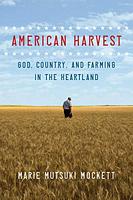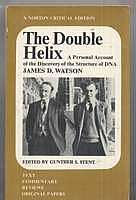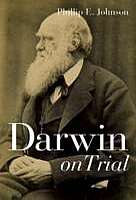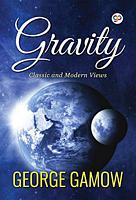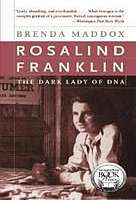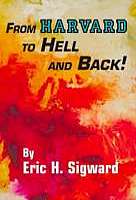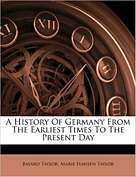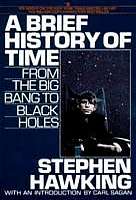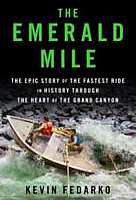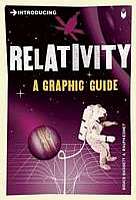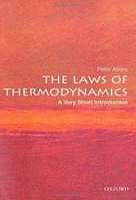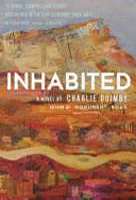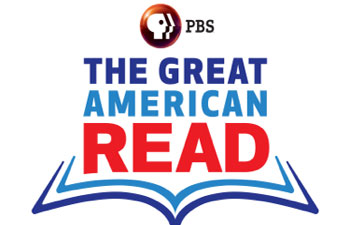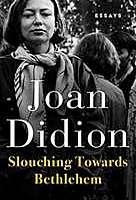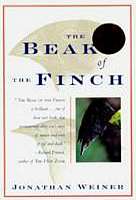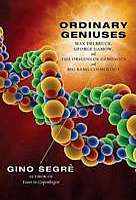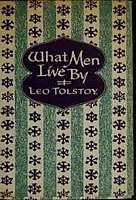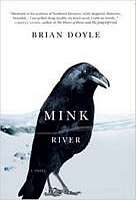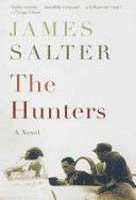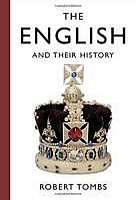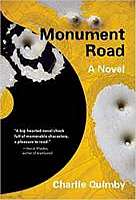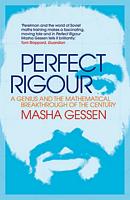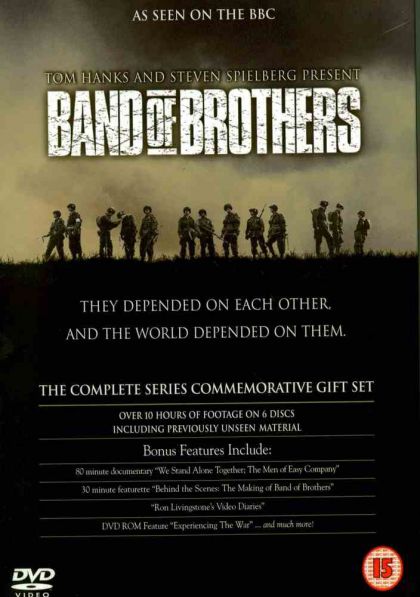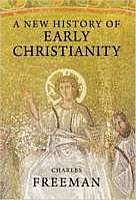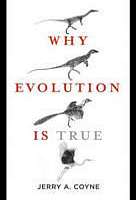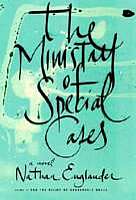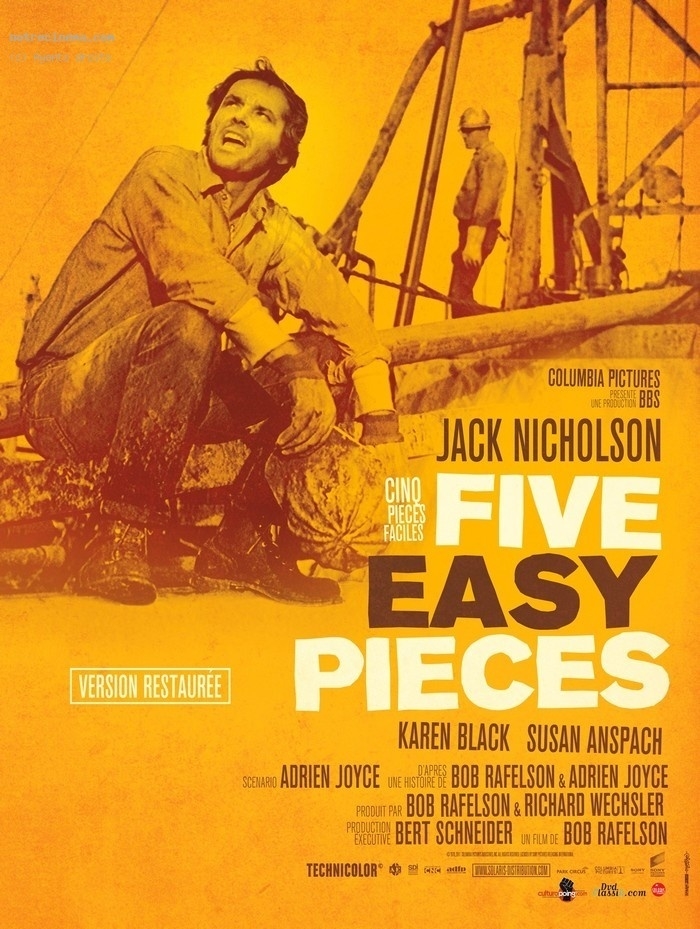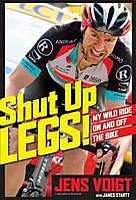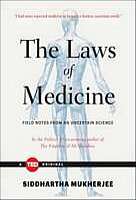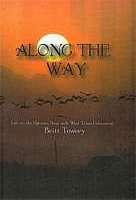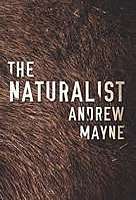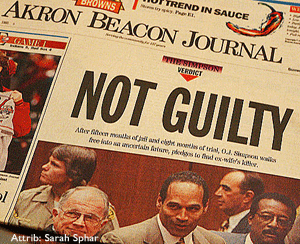 Reviews
Reviews
Cross the Great Divide
'Cross the Great Divide, side by side we'll ride,' a line from the Oregon Trail song, articulates this book's theme: Bridging differences in culture and place, particularly that of city and country.
Honest Jim
Watson's superb account of his and Crick's discovery of the structure of DNA. It is the rarest of books: a scientific page-turner, with suspense, strong personalities and a child-like narrator.
Wide of the Mark
Johnson's book provides a perspective on creationist thinking and argumentation. It demonstrates that attorneys are trained to advocate, to argue, not to look hard for the best understanding.
Gamow on Gravity
Those genuinely curious about the intellectual story of gravity will find Gamow a superb teacher, one adept at explaining physics to the uninitiated,and to the newly initiated, high school and college students, most effectively to an audience comfortable with algebra and geometry.
The Dark Lady of DNA
Rosalind Franklin made critical contributions to the discovery of DNA's structure, yet was not awarded the Nobel. Why not? Rank villainy? Maddox's masterful recounting lays out the complex tale.
Augustine redux
The autobiography of a young phenom of the 60's and 70's who attended Horace Mann, Harvard, where he rowed on the crew and joined the Porcellian Club, then Cambridge, Stanford, and several divinity schools. It is book of hubris and wild youth, of drugs, sex, and the occult, and finally, Jesus.
fin de siècle German optimism
This is the first history of Germany I have read since the mid-1970's. It is nearly a complete history, stopping in 1883, ten years after it's author died. (his wife extended the history 14 more years in a subsequent edition.) An American writer, Bayard Taylor was most well-known for his travel writing, but was also a poet and a historian. His history reads easily, as might be expected from a writer of popular travel accounts, and is reasonably complete.
Short and sweet
A Brief History of Time is the single best popularized science book I have read to date on the subject of modern physics. It has been held that kind of regard since it has been published in 1988, but I resisted reading it, because I had formed the opinion that modern physics, buried so deeply in mathematical models divorced from everyday experience, was simply too difficult to convey to the non-practitioner, that vast group including myself.
Sprinting down the Colorado
This is the epic story of the fastest boat ride in history (at the time) through the heart of the Grand Canyon on the Colorado river. With a gigantic release of water from the Glen Canyon Dam, the Colorado River was closed. So Kenton Grua evaded park rangers and launched his wooden dory, the Emerald Mile and barely completed his historical run. The story is very well told, and includes a solid history of the formation of the Grand Canyon, and the first efforts to navigate the river by John Wesley Powell.
Visualizing Relativity
This book summarizes Einstein's special and general theory of relativity using cartoon drawings to illustrate every concept. It does not shy away from physical formulae, neither does it provide in depth discussion of same.
Entropy is so simple
Peter Atkins, a bona fide chemistry professor, takes a shot at summarizing the Laws of Thermodynamics, particularly the 2nd Law, for the million. He claims that when he is done explaining, you will understand how all change of any kind occurs, why death itself must come, even how the unfolding of the very thoughts you are employing to read his book is a consequence of the 2nd Law. Alas his explanations fall short of such a lofty goal.
Pandora has many boxes
 The ability to directly and much more easily modify the genome of any living organism, via somatic or germline modification, has become a reality via CRISPR-Cas9 techniques. Chinese scientist He Jiankui recently claimed to have opened yet another of Pandora's seemingly endless set of boxes: Germline gene editing. Jennifer Doudna's recent book A Crack in Creation, a must-read, warns about premature application of CRISPR-Cas9.
The ability to directly and much more easily modify the genome of any living organism, via somatic or germline modification, has become a reality via CRISPR-Cas9 techniques. Chinese scientist He Jiankui recently claimed to have opened yet another of Pandora's seemingly endless set of boxes: Germline gene editing. Jennifer Doudna's recent book A Crack in Creation, a must-read, warns about premature application of CRISPR-Cas9.Persistent kindness
Inhabited, Charlie Quimby's follow-up novel to his excellent Monument Road, focuses on life as a homeless person in a small city in western Colorado. This story is both edifying and compelling because he draws sympathetic and realistic characters, not just of those who migrate uncertainly from one temporary abode to another, but of those inhabitants who try to help the homeless and those who oppose such help, which can even be the same person under differing circumstances.
Celebrating reading
Reading has been in my own life a regular feature, even an addiction. So much beyond the immediate and the local becomes accessible. Reading has been in some ways for me a trusted companion. Recently the PBS series The Great American Read came to my attention. My wife Cindy and I followed with it with great eagerness.A gaze blank and pitiless as the sun
Joan Didion's set of personal essays from the mid-60's, an exercise in the emerging New Journalism and most in the first person, are episodically brilliant, but just as often facile and self-indulgent.
A Finch in Time
The Beak of the Finch follows a husband and wife scientific team, Peter and Rosemary Grant, in their studies of Darwin's finches on Daphne Major island in the Galapagos archipelago, looking for evidence of natural selection. They have spent twenty years observing the finch population for direct evidence of natural selection. They concluded from these observations that natural selection is occurring daily.
Ordinary Overuse of Genius
This is a good but not great biography of two lesser-known 20th century scientists, George Gamow and Max Delbrück, both of whom show up in many historical accounts of the history of molecular biology, hence my interest. I was particularly interested in the author's depiction of Delbrück, a Nobel Prize winner late in his life for work done thirty years prior. Delbrück, who is routinely depicted as a great thought leader and a fiercely intelligent scientist, is elusive in other historical accounts, begging the question: What did he contribute, and why was his input so prized?
The Heart of Tolstoy
Tolstoy remains one of my favorite writers. His War and Peace and Anna Karenina were reading investments that still pay dividends. These four short stories, in particular What Men Live By, represent some aspects of Tolstoy's later turn to a simpler and more universal religious outlook, when he eschewed organized religion, and embraced a code based on Christ's teaching alone, centering on the Golden Rule and the Sermon on the Mount.
The Department of Public Works
The Department of Public Works in the coastal village of Neawanaka on the Mink River, besides performing the ordinary public works of cleaning streets and repairing sidewalks, slowly expands over time to 'preserve history, collect stories, repair marriages, prevent crime, augment economic status, promote chess, manage insect populations, run sports leagues, isn't that a bit much? We even give haircuts.' ( page 15) Worried Man and Cedar are its two aging employees, idealists who doggedly work to carry out their mission statement: 'Brains against Pains.' ( page 45)
The lonely warrior
Salter, a former fighter pilot, writes directly from experience in this novel of U.S. fighter pilots in the Korean War. He draws an internal picture of the psychology of the single combat warrior, and it feels genuine. His portrayal of heroism in the cloistered world of aerial combat does not always translate into obvious laudable accomplishment.
Ever England
My initial interest in this book was to read a good summary of the history of the English Civil War, from James I to William and Mary. I found Tombs' account to be brisk, clear and reasonably complete, which propelled me to continue reading. I particularly enjoyed his judicious mix of historiographical review while attempting to pick that elusive clean line in historical narrative. The book proved to be an reasonably short yet comprehensive account of England's history.
Laconic Love
It was a pleasure to soak in the deep water that is this novel. Charlie Quimby brought back alive a world I have had only episodic contact with in my life: small towns in the far country, where as a teenager, I spent successive summers, first in a small ranching and farming town in central Oregon, second in an oil and fishing town on the Kenai peninsula in Alaska. It was not as much the characters in this novel, but their sensibility, their rhythms of speech and actions that were recognizable from my past forays beyond the city. After the pleasure of remembrance past is the pleasure of a deceptively simple love story.
Too simply pure
The Poincaré conjecture, one of the great unsolved topological problems, was finally proven at the end of the 20th century by Grigoriy Perelman, a Russian mathematician of genius. Topology might be described as distilled geometry. The historian Masha Gessen, who grew up herself in the Russian mathematical culture, invites us into the Aspergian milieu of world-class geometers to tease out the tale.
Pocket Review, Title Diner, Studio Metro-Goldwyn-Mayer, Rating 4.5,
Diner: A movie that never gets old
Diner immediately draws you into a group and a world as if you had always belonged there. After high school, a group of guys continue to meet regularly at their favorite Diner to shoot the shit. They are more comfortable in each other's company than they are with their girlfriends.
Reforming progress
Calvinist philosophy professor Theodore Plantinga suggests that 'post-Enlightenment' Protestants, so as to act progressively or correctly in support of individual liberties, should embrace the Protestant faith, building their responses to the world on the foundation of Calvin and Luther, rather than embrace 'short-sighted' Enlightenment ideas. How does Plantinga justify his view that the societal direction of Western civilization can be improved by eschewing the Enlightenment influence and replacing it with the Reformational Christian outlook of the 16th century?
Pocket Review, Title Band Of Brothers, Studio HBO, Rating 5.0,
Band of Brothers: A movie that never gets old
Band of Brothers is intimate, sobering, and gives some sense of the bonds formed in war by soldiers facing death together. It is an account of a cohort of U.S. airborne troops, beginning with their training through their World War II combat experiences in Normandy, Holland, the Ardennes Forest, Alsace and Bavaria, culminating in the post-war occupation of Bavaria and central Austria. This is the best war movie ever made.
The gestation of Christianity
This is a very readable historical treatment of the early gestation of Christianity. The approach is explicitly historical rather than theological, allowing the author to examine the early documents and archeology in light of the culture and politics of the early Christian writers. In particular the diverse perspectives and the many contradictions found in their writings can make more sense when considering wider historical influences, such as the region the writer came from, the language(s) they spoke and didn't speak, whether they were Jewish or Gentile, their position in society, and so on.
Evolution and Truth
This book has been hailed by some as a clear-eyed exposition of modern evolutionary biology. I found it strong on the science, and disappointingly weak on the intellectual discipline.
Kafka comes to Argentina
In The Ministry of Special Cases Nathan Englander tells a story of the Dirty War of Argentina as if in the guise of Isaac Bashevis Singer. The tale is steeped in irony, told through the eyes of a Jew, Kaddish Pozsnan, even outcast from the Jewish community of Buenos Aires.
Movie Review, Title Five Easy Pieces, Studio Columbia TriStar, Rating 3.0,
Is truculence alienation?
The movie Five Easy Pieces was all the rage when it was made, a tale of alienation in a time when many fancied themselves agents of great change, so I decided to finally watch the whole thing, having only seen the famous chicken sandwich scene. Jack Nicholson's performance was excellent. The film, alas, for me, was too psychologically brutal to enjoy, and left me wondering what the point was.
Shut Up, Legs!
Jens Voigt was a wonderful cyclist to watch in the Tour de France. He was an aggressive rider, willing to attack in breakaways with few odds of success, friendly and available before and after a race. His motto, 'Shut Up, Legs!,' can be appreciated by anyone who rides bicycles long distance, or any endurance athlete for that matter: Muscular pain from exertion must be ignored in the pursuit of endurance feats.
Are there Laws of Medicine?
Modern medicine began embracing scientific methods during the last couple of centuries, and in the past one hundred years this has produced an explosion of medical technologies that have aided physicians in significantly controlling some diseases and in particular, extending lives. Today in developed countries, many tests are available for diagnosis and many drugs are available for possible treatment. So why can't physicians today just run a comprehensive battery of tests for every sick patient and spit out a clear diagnosis, and with that, a clear prognosis and plan for a cure? Siddhartha Mukherjee proffers an answer via his Laws of Medicine.
Along the Way with Britt Towery
Britt Towery is a very American thinker, who's opinion columns from a West Texas newspaper are collected here. I warmed quickly to his direct and sometimes folksy Texas style. He holds strong opinions on many subjects, but has a particular emphasis regarding the importance of the First Amendment to the Constitution, which safeguards our freedom of speech and religion.
The Naturalist
The concept of this book was intriguing to me: a scientist, a practicing field biologist, applies his knowledge of biology and physics, and uses his analytical training to solve crimes. This worked quite well in the clever application of some of the science, and the author showed some wit in his observations. However, the overall plot went from unlikely, the usual for a suspense story, to ludicrous. What a real disappointment.
Looking back at O. J.
After viewing the mini-series O.J.: Made in America, Ta-Nehisi Coates looks back twenty two years and finds that as a young black college student he missed what most outraged white people missed: Many in the black community celebrated O. J.'s escape from a brutal justice system that they lived with every day.


 [Regarding] a beneficent and omnipotent God . . . I feel most deeply that the whole subject is too profound for the human intellect. A dog might as well speculate on the mind of Newton.
[Regarding] a beneficent and omnipotent God . . . I feel most deeply that the whole subject is too profound for the human intellect. A dog might as well speculate on the mind of Newton. READING
READING ARCHIVES
ARCHIVES CATEGORIES
CATEGORIES QUOTES
QUOTES